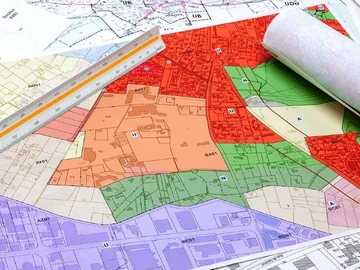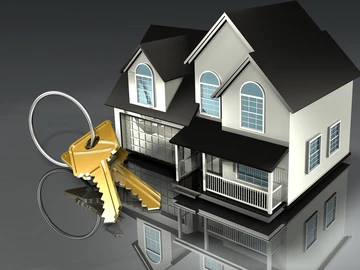Property scams in Zimbabwe remain a serious risk for buyers and renters. With urban property prices ranging from 0, scammers exploit the desire for affordable housing, especially in high-demand areas like Harare and Bulawayo.
2025 Market Snapshot:
- Over 15% of property inquiries in Harare involve suspicious listings or unverified agents.
- Common scams include title deed fraud, fake rentals, and ghost developments.
- Awareness and due diligence are essential to protect your money and avoid legal issues.
This guide provides practical steps to identify, prevent, and avoid property scams in Zimbabwe.
Common Types of Property Scams
1. Title Deed Fraud
- Scammers sell properties they do not own.
- Fake or forged title deeds are used to convince buyers.
2. Ghost Developments
- Promises of apartments, houses, or stands that do not exist.
- Buyers pay deposits for non-existent properties.
3. Rental Scams
- Fake landlords ask for deposits upfront.
- Properties are either already rented or do not exist.
4. Overpriced or Misrepresented Listings
- Properties advertised with exaggerated features.
- Buyers pay more than market value for substandard property.
5. Unlicensed Agents
- Agents without valid registration may mislead buyers or collect fees without accountability.
How to Verify Property Ownership
1. Check the Title Deed at the Deeds Office
- Confirm the property owner, parcel number, and any encumbrances.
2. Use a Licensed Conveyancer
- Ensures all legal documents are valid before payment.
3. Confirm ZINARA or Council Rates
- Ensure property rates are paid and up to date; unpaid rates may indicate fraud.
4. Inspect the Physical Property
- Visit the site and verify the property exists and matches the description.
5. Verify Agent Credentials
- Confirm membership with the Institute of Estate Agents of Zimbabwe (IEAZ).
Red Flags to Watch Out For
|
Red Flag |
What it Indicates |
|
Price significantly below market |
Possible scam or urgent sale pressure |
|
Request for full payment upfront |
Unusual or risky payment terms |
|
No official documents or cession |
Property may not be legally owned |
|
Pressure to act quickly |
Creates fear-based decision-making |
|
Unlicensed agent |
Lack of accountability or legal recourse |
Step-by-Step Guide to Avoid Scams
Step 1: Research Thoroughly
- Check the property’s history, sale records, and surrounding developments.
Step 2: Engage Professionals
- Use licensed estate agents, conveyancers, and property lawyers.
Step 3: Verify All Documents
- Confirm Title Deed, cession, council clearance, and building approvals.
Step 4: Visit the Property
- Inspect for actual existence, condition, and access.
Step 5: Payment Precautions
- Avoid cash payments; use traceable bank transfers or escrow accounts.
Step 6: Be Cautious of Online Listings
- Confirm legitimacy of online portals; cross-check with official records.
Step 7: Trust Your Instincts
- If something feels too good to be true, pause and investigate further.
Legal and Regulatory Protections
1. Institute of Estate Agents of Zimbabwe (IEAZ)
- Ensures agents are licensed and adhere to ethical standards.
2. Deeds Office Verification
- Guarantees authenticity of property ownership and cessions.
3. Police and Fraud Investigation Units
- Can investigate cases of forgery or fraud in property transactions.
4. Standard Conveyancing Practices
- Ensures proper documentation and legal transfer of ownership.
Practical Examples
Example 1: Title Deed Scam
- Buyer pays US $80,000 for a house in Mount Pleasant.
- Title deed later found to be forged; property already owned by someone else.
- Loss prevented if buyer had verified ownership at the Deeds Office.
Example 2: Ghost Development Scam
- Buyer pays deposit for a townhouse in Chisipite advertised online.
- On-site visit reveals land is undeveloped, no building exists.
- Loss avoided by visiting the property before payment.
Example 3: Rental Scam
- Tenant sends US $1,200 deposit to landlord who never appears.
- Property already rented by another tenant.
- Scam prevented by confirming landlord credentials and visiting property.
Additional Tips for Safe Property Transactions
1. Always Use Escrow or Bank Guarantees
- Protects funds until property transfer is confirmed.
2. Request References from Previous Buyers
- Check agent or developer track record.
3. Check for Legal Disputes
- Ensure property is not involved in court cases or inheritance disputes.
4. Use Multiple Verification Channels
- Cross-check Deeds Office, council records, and agent credentials.
5. Avoid Emotional Decisions
- Scammers exploit urgency or excitement.
Summary
- Property scams in Zimbabwe are a serious risk but can be avoided with due diligence.
- Red flags: below-market prices, pressure to pay upfront, unlicensed agents, missing documentation.
- Verification: Deeds Office, licensed conveyancers, council records, and site inspections.
- 2025 Insight: Online property portals and urban demand increase exposure to scams; careful research is more important than ever.
Key Takeaway: Protect yourself by verifying ownership, using licensed professionals, inspecting properties, and making traceable payments. Knowledge and caution are the best defenses against property scams in Zimbabwe.
 Continue with Facebook
Continue with Facebook
 Continue with Email
Continue with Email














